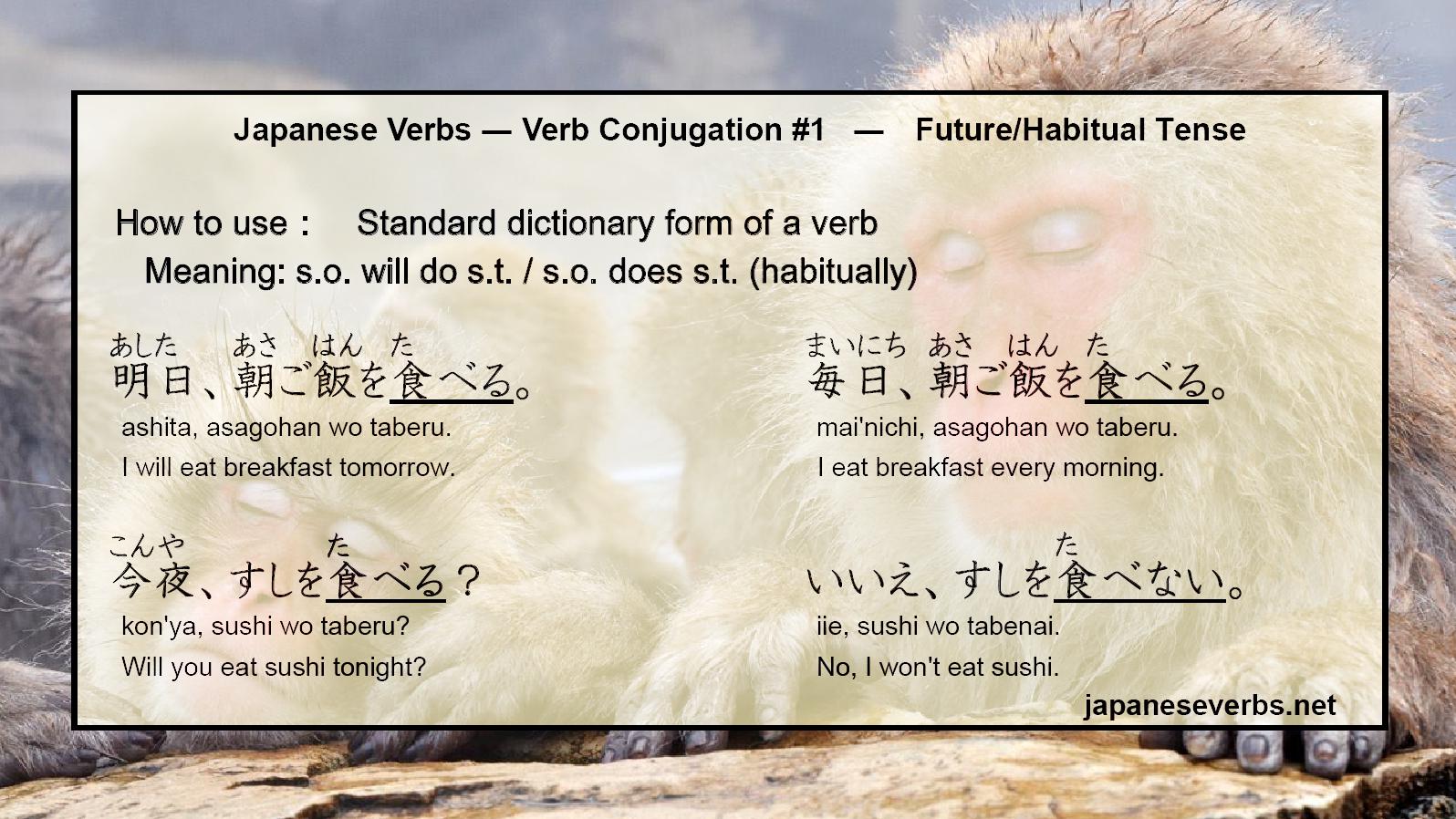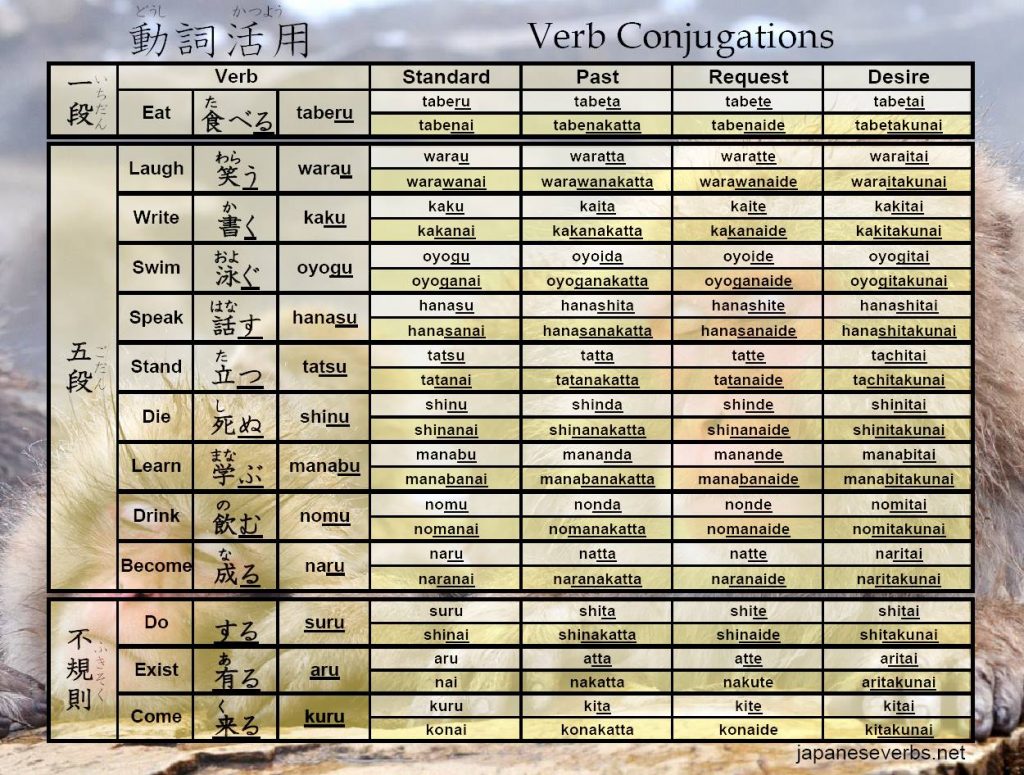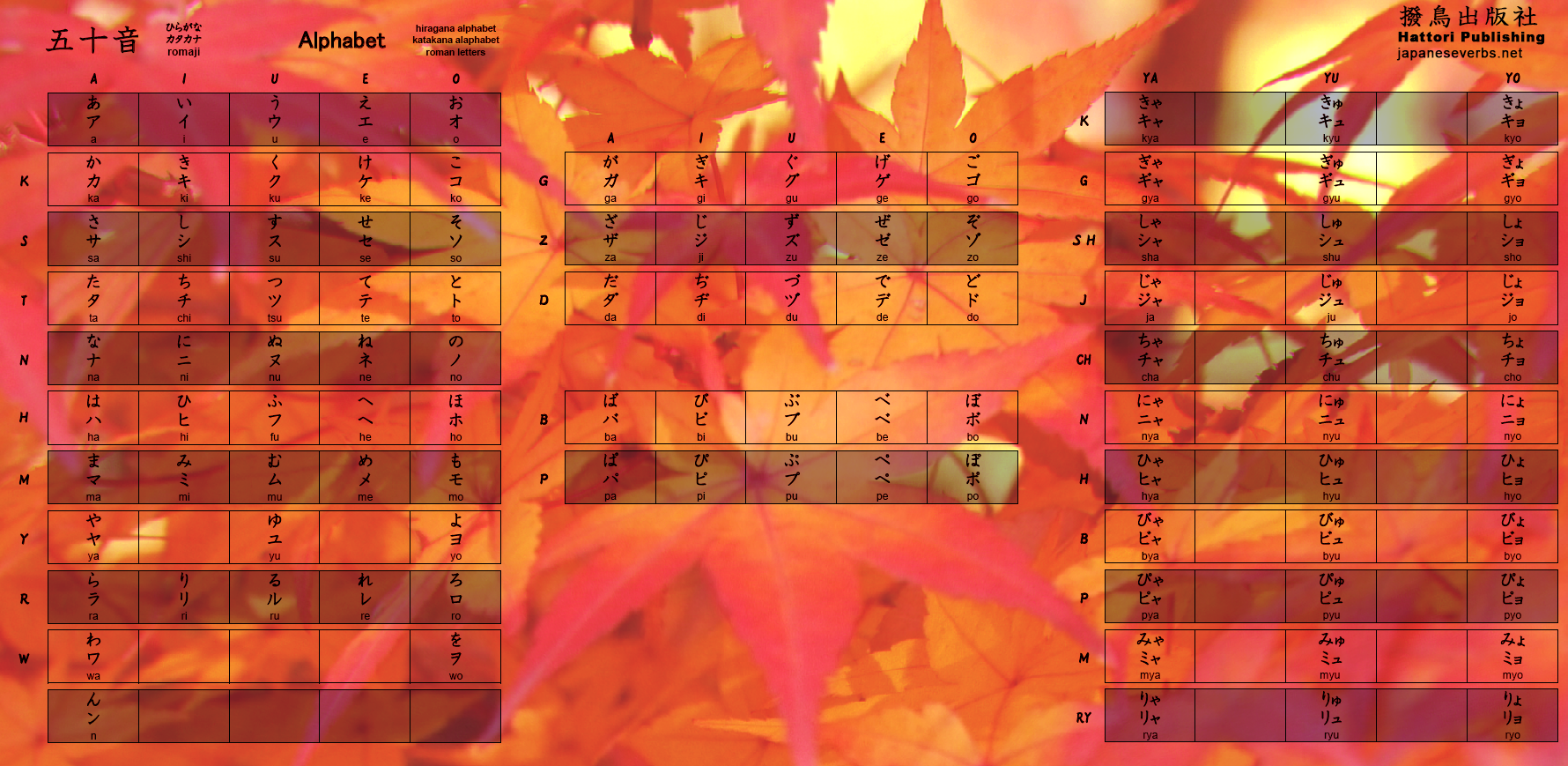In its most basic sense, Japanese has casual and polite forms.
Let’s start by understanding in which situations Casual and Polite Japanese are used.
Casual Japanese is used among friends, family and towards people who are typically younger than the speaker. When you find a verb in the dictionary, it will always be listed in its casual form.
Polite Japanese is generally used between strangers, formal settings and towards those who are older than the speaker.
Today, we will learn how to conjugate verbs into formal Japanese.
First, remember that there are two types of verbs in Japanese aside from irregular verbs: Ichidan verbs (also known as “ru” verbs) and Godan verbs (known as “u” verbs).
Conjugating Ichidan Verbs to its Polite Form
To conjugate an Ichidan verb, simply remove the final “ru” sound and you are left with the verb stem.
eat = taberu → tabe
watch = miru → mi
Add “masu ” to the end of these verbs to conjugate the verb to its polite form. To make it into the negative polite form, simply replace “masu” with “masen”.
tabemasu = I will eat
tabemasen = I won’t eat
mimasu = I will watch
mimasen = I won’t watch
Conjugating Godan Verbs to its Polite Form
To conjugate a Godan verb, remove the final “u” sound and add an “i” sound to the end to create the verb stem.
write = kaku → kaki
read = yomu → yomi
speak = hanasu → hanashi
Same as ichidan verbs, add “masu ” to the end of these verbs to conjugate the verb to its polite form. To make it into the negative polite form, simply replace “masu” with “masen”.
kakimasu = I will write
kakimasen = I won’t write
yomimasu = I will read
yomimasen = I won’t read
hanashimasu = I will speak
hanashimasen = I won’t speak
Please note that not all verbs that end with “ru” are ichidan verbs. It’s best to remember which verbs are ichidan when you study new vocabulary.
Now it’s your turn! Try to conjugate the verbs listed below to their polite form.
Sleep : neru
Drink: nomu
Laugh: warau
Cry: naku
Remember: oboeru
Forget: wasureru
Play: asobu



